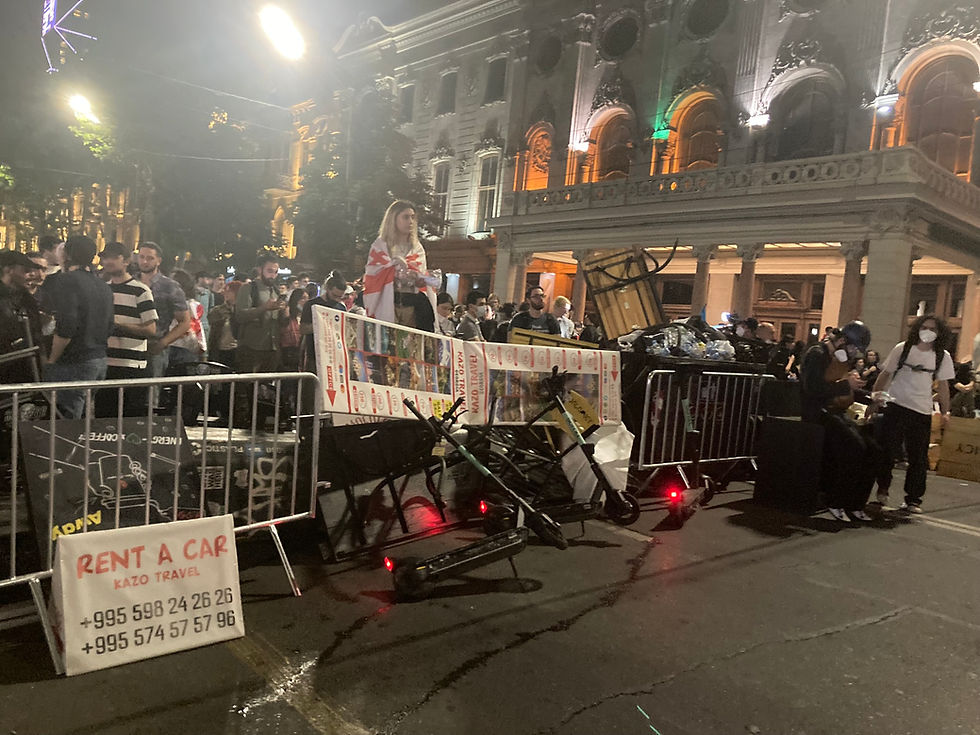Georgia Erupts: Protests in Tbilisi Amid Crackdown
- Europinion

- Dec 1, 2024
- 2 min read

Georgia is experiencing significant political unrest following the government's decision to suspend European Union (EU) accession talks until 2028. This move ignited widespread protests and led to a forceful response from authorities.
On November 28 2024, Prime Minister Irakli Kobakhidze announced that Georgia would halt its EU membership negotiations and decline EU financial assistance until 2028. He accused the EU of using accession and grants as instruments of "blackmail" and criticized European politicians for alleged interference in Georgia's parliamentary elections. Kobakhidze stated that Georgia would revisit EU accession discussions in 2028 after strengthening its economy.
The same day, the announcement triggered immediate protests in Tbilisi, with demonstrators gathering outside the Georgian parliament. President Salome Zourabichvili, a critic of the ruling Georgian Dream party, joined the protesters, declaring, "I am with these people. The resistance has started and will not end until we have new elections." She confronted riot police, questioning their allegiance to Georgia or Russia.
On November 29, protests intensified as thousands gathered for a second consecutive night. Riot police employed water cannons and pepper spray to disperse crowds, leading to violent clashes. Demonstrators responded by setting up barricades and launching fireworks toward police lines. Elene Khoshtaria, an opposition leader, suffered a broken hand during the crackdown, likening the police tactics to those used in Russia and Belarus.
On November 30, the third night of protests saw increased violence, with hundreds detained and dozens injured. Demonstrators stormed the headquarters of the ruling Georgian Dream party, and fires were set on Tbilisi's main Rustaveli Avenue. Many universities, businesses, and institutions closed in solidarity with the protests. President Zourabichvili announced she would remain in office beyond her term's end, citing the parliament's illegitimacy. On the same day, the U.S. State Department suspended its strategic partnership with Georgia, condemning the government's anti-democratic actions and increased vulnerability to Kremlin influence.
These events underscore a deepening political crisis in Georgia, marked by public opposition to perceived Russian influence and electoral manipulation, and a significant setback in the country's aspirations for European integration.
Image: Zlad!/Wikimedia Commons
.png)



Comments